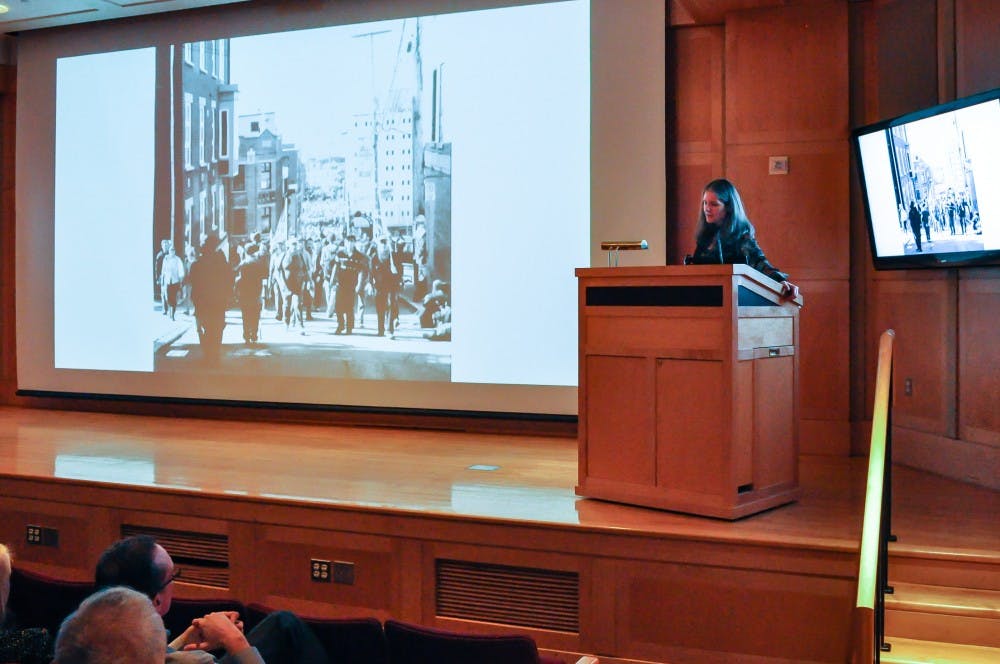Religion faculty member explains case study in her new book
Zwissler's emotional journey of being religious and political in North America

The theory of secularization is the idea that religion is slowly pushed aside and excluded from law and politics.
Some see this as a good thing, and others see this as detrimental. Laurel Zwissler, religion faculty member and author, claims that religion and politics come in multiple combinations in North America.
Zwissler spoke on campus Wednesday in the Sarah and Daniel Opperman Auditorium in Charles V. Park Library.
Anthropology faculty member Laura Cochrane prompted the audience by asking: "What does it mean to be both religious and politically engaged in North America today?"
Zwissler's new book, Religious, Feminist, Activist: Cosmologies of Interconnection, was highlighted through a description of her case study that took place in Quebec during a global justice protest.
The study consisted of field work Zwissler completed during anti-globalization protests in Quebec City in 2001.
She presented photos that showcased the conditions of the movement. Zwissler noted the scene looked "post-apocalyptic."
Violence was demonstrated by the police, using tear gas on civilians and protestors during the event. Zwissler said many of the women found joy and comfort through their rituals, despite the fear many of them faced.
Rituals were not only used for comfort, but also provided a way to demonstrate peacefulness and diffuse tension between protestors and police. Many women, Zwissler said, formed a sense of community through religious acts in groups of complete strangers.
Rituals such as dancing, prayer or giving to others were practiced by the three women she described heavily in her book. Each of the women identified religiously as either Pagan, Catholic or United Church while also self-identifying as feminists.
"The goal of my project is to describe and analyze the ways women actually live their feminisms, rather than determining prescriptions of how feminism should be lived," Zwissler said.
Although she spoke in depth about the three women, her study included over 50 feminists and activists who were religious in some way. 19 of those in the study identified as LGBTQ.
Zwissler said there is a long lineage of faith-based social justice movements in North America, and silence about their connection motivated her to complete the study.
Detroit Senior Victoria Daniel said she was Zwissler's student during her sophomore year.
Daniel said she sees a clear connection between social activism and religion. "There's activists for religion alone, so I think they feed on each other," Daniel said.
Oakland Sophomore Brooke Cracker said she does not believe that social activists are often religious.
"I wouldn't say I think they go hand-in-hand," she said. "I'm not super religious."
Richard Rothaus, dean of the College of Liberal Arts and Social Sciences noted that Zwissler's work and dedication toward her book was worth celebrating.
Zwissler hopes audience members and readers learn that polarization and stereotyping religion can be harmful when trying to understand others. She brought up current movements like #MeToo, transgender rights and the women's march.
"All movements for social change... involve people from across the social spectrum, and that inherently includes religious diversity," Zwissler said. "If we want to understand religion in North America we need to pay attention to this diversity and to the full power of religion across the political spectrum."
The talk was part of the second annual Anthropology of Religion Speaker Series, sponsored by the Department of Philosophy and Religion and the Department of Sociology, Anthropology and Social Work.



